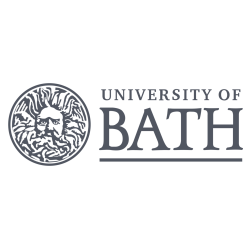
28 Nov Faculty of Science URSA PhD project: Interpretable Models for Invariant Representations of High-dimensional Data
Faculty of Science URSA PhD project: Interpretable Models for Invariant Representations of High-dimensional Data
Bath · Full time
Faculty of Science URSA PhD project: Interpretable Models for Invariant Representations of High-dimensional Data
University of Bath Department of Computer Science
Dr Georgios Exarchakis, Prof Michael Tipping Sunday, December 10, 2023
Competition Funded PhD Project (UK Students Only)
Keywords: Bath, United Kingdom, Applied Mathematics, Artificial Intelligence, Computational Chemistry, Computational Mathematics, Computer Vision, Data Science, Machine Learning, Mathematical Modelling
About the Project
The University of Bath is inviting applications for the following PhD project commencing in September 2024.
Overview of the Research:
Our research project focuses on interpretable machine learning methods designed for high-dimensional data. Specifically, our objective is to develop techniques for recognizing data symmetries and incorporating them as descriptive tools within standard machine learning pipelines. These symmetries are represented as functions that generate data structures that remain invariant when subjected to specific transformations within their domain and are otherwise isomorphic. While it is common practice to derive these representations through deep learning, our project uniquely prioritizes the utilization of explicit mathematical models whenever feasible.
We value flexibility in selecting methodologies, and we highly appreciate novel solutions to the challenges we address. Our project promotes interdisciplinary collaboration, encouraging students to employ creative approaches to problem-solving. Our aim is to cultivate an environment that supports fundamental research in Machine Learning and Deep Learning, offering students the ideal platform for personal development in a research area that holds numerous long-term career prospects.
Prospective students should possess a solid foundation in mathematics, particularly in mathematical analysis, algebra, signal processing, and probabilistic modelling. Our expectations include achieving competitive results in machine learning problems and a strong emphasis on the efficient implementation of proposed algorithms. Students are expected to have, or be willing to learn, how to utilize state-of-the-art Machine Learning frameworks and popular libraries for data analysis, including TensorFlow, PyTorch, Jax, Numpy, Scikit-Learn, Pandas, and others.
This research project is based at the distinguished University of Bath, which earned the title of University of the Year for 2023 from the Sunday Times. The university is renowned for its unwavering commitment to academic excellence, consistently ranking among the UK’s top institutions. Located in the picturesque city of Bath, it offers students a high quality of life. Bath’s rich cultural heritage adds a unique dimension to the academic journey, providing an ideal environment for maintaining a strong work-life balance and seeking both academic excellence and a well-rounded, fulfilling experience.
Candidate Requirements:
Applicants should hold, or expect to receive, a First Class or high Upper Second Class UK Honours degree (or the equivalent) in a relevant subject. A master’s level qualification would also be advantageous.
Non-UK applicants must meet our English language entry requirement.
Enquiries and Applications:
Informal enquiries are encouraged and should be directed to Dr Georgios Exarchakis, ge394@bath.ac.uk
Formal applications should be submitted via the University of Bath’s online application form for a PhD in Computer Science prior to the application deadline of Sunday 10 December 2023.
Important:
When completing the application form, please:
- In the Funding your studies section, select ‘University of Bath URSA’ as the studentship for which you are applying.
- In the Your PhD project section, quote the project title of this project and the name of the lead supervisor in the appropriate boxes.
More information about applying for a PhD at Bath may be found on our website.
Funding Eligibility:
To be eligible for funding, you must qualify as a Home student. The eligibility criteria for Home fee status are detailed and too complex to be summarised here in full; however, as a general guide, the following applicants will normally qualify subject to meeting residency requirements: UK and Irish nationals (living in the UK or EEA/Switzerland), those with Indefinite Leave to Remain and EU nationals with pre-settled or settled status in the UK under the EU Settlement Scheme. This is not intended to be an exhaustive list. Additional information may be found on our fee status guidance webpage, on the GOV.UK website and on the UKCISA website.
Although not eligible for the studentship funding advertised here, exceptional Overseas students (e.g. with a UK Master’s Distinction or international equivalent and relevant research experience), should contact with the lead supervisor before submitting an application to enquire about potential other funding opportunities.
Equality, Diversity and Inclusion:
We value a diverse research environment and aim to be an inclusive university, where difference is celebrated and respected. We welcome and encourage applications from under-represented groups.
If you have circumstances that you feel we should be aware of that have affected your educational attainment, then please feel free to tell us about it in your application form. The best way to do this is a short paragraph at the end of your personal statement.
Funding Notes
A studentship includes Home tuition fees, a stipend (£18,622 per annum, 2023/24 rate) and research/training expenses (£1,000 per annum) for up to 3.5 years. Eligibility criteria apply – see Funding Eligibility section above.
References
- “Kymatio: Scattering transforms in python” Andreux M. et. al. – The Journal of Machine Learning Research, 2020
- “Solid harmonic wavelet scattering for predictions of molecule properties” Eickenberg M. et. al. – The Journal of chemical physics, 2018
Please click here to learn more.


Sorry, the comment form is closed at this time.